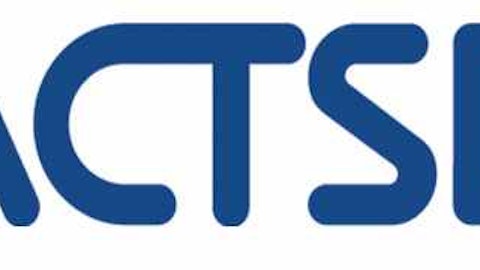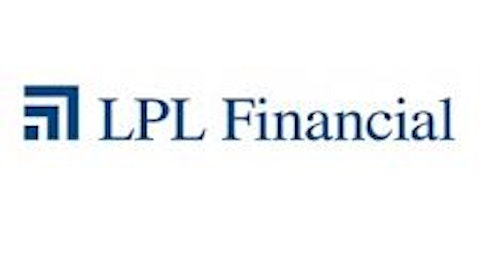As a major discount broker, E TRADE Financial Corporation (NASDAQ:ETFC) helps investors seek their fortune in the stock market. But for shareholders in E*TRADE stock to benefit, what they need is for investors to feel confident enough about the stock market’s prospects that they open new brokerage accounts and make more stock trades. With its stock up of over 50% just since November, E TRADE Financial Corporation (NASDAQ:ETFC) is clearly counting on investor optimism to drive its financial results higher. Let’s take a look at what’s behind E*TRADE’s big move.
The carnage of the market meltdown
E TRADE Financial Corporation (NASDAQ:ETFC)’s past has been pretty ugly over the past several years, as the brokerage industry has suffered from the shell-shocked reaction that investors had following the financial crisis. Even as stock markets advanced, many investors remained on the sidelines, and that caused problems for players throughout the industry. As you can see below, peers Charles Schwab Corp (NYSE:SCHW) and TD Ameritrade Holding Corp. (NYSE:AMTD) have both joined E TRADE Financial Corporation (NASDAQ:ETFC) in lagging behind the performance of the broader market since mid-2009.
Brokers Total Return Price data by YCharts.
In addition to tepid levels of activity among investors, brokers also face the difficulty that low interest rates present. During ordinary times, brokers are able to make money from the cash balances their customers keep on hand. But with rates so low, Schwab, Vanguard, Fidelity, and other brokers have had to subsidize their money market funds, and while E*TRADE has largely turned to its banking subsidiary as a cash option for its customers, rates nevertheless affect its ability to profit as well.
What’s especially hurting E*TRADE

That performance has led a vicious circle for the stock, as key investors have lost confidence in the company’s ability to recover further. For instance, in March, Citadel Equity Fund sold off its nearly 10% stake in E*TRADE through a secondary offering, taking advantage of the recent jump in the stock to sell out.
In addition, E TRADE Financial Corporation (NASDAQ:ETFC) has largely missed out on some of the favorable trends in the industry. TD Ameritrade Holding Corp. (NYSE:AMTD) and Charles Schwab Corp (NYSE:SCHW) have launched extensive commission-free ETF platforms to draw in new customers, joining rivals Fidelity and Vanguard. E*TRADE has a commission-free ETF platform, but its lineup of WisdomTree Investments, Inc. (NASDAQ:WETF), GlobalX, and db-X funds doesn’t carry nearly the popularity of the iShares, SPDR, and Vanguard funds that most of E*TRADE’s peers focus on in their platforms.
Be careful
E TRADE Financial Corporation (NASDAQ:ETFC) stock has already reflected the expectation that all of these negatives will reverse themselves in the near future. Until it proves its ability to follow through on those positive views, E*TRADE doesn’t look like a good bet from a risk-reward standpoint at this point.
The article E*TRADE Stock Is Counting on Investors originally appeared on Fool.com and is written by Dan Caplinger.
Fool contributor Dan Caplinger has no position in any stocks mentioned. You can follow him on Twitter @DanCaplinger. The Motley Fool recommends TD Ameritrade.
Copyright © 1995 – 2013 The Motley Fool, LLC. All rights reserved. The Motley Fool has a disclosure policy.






